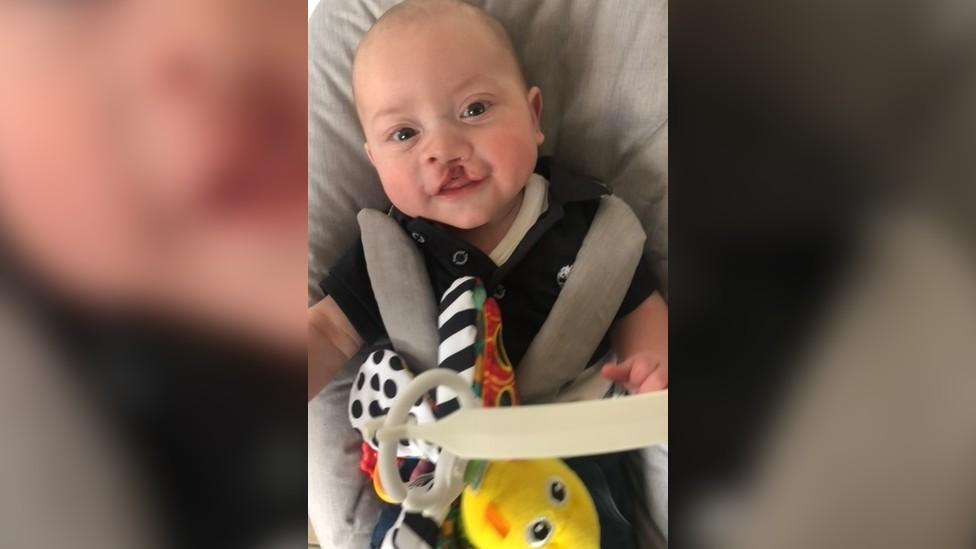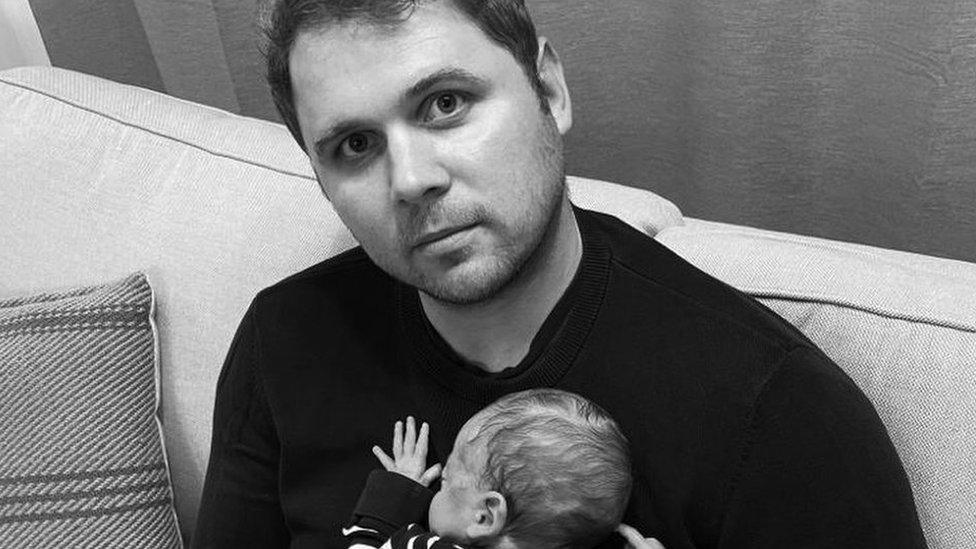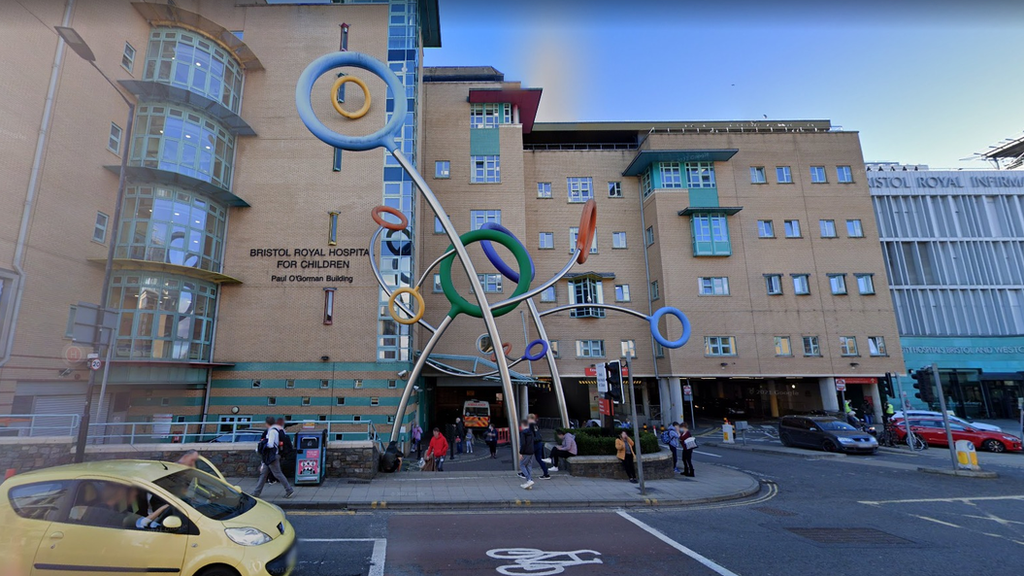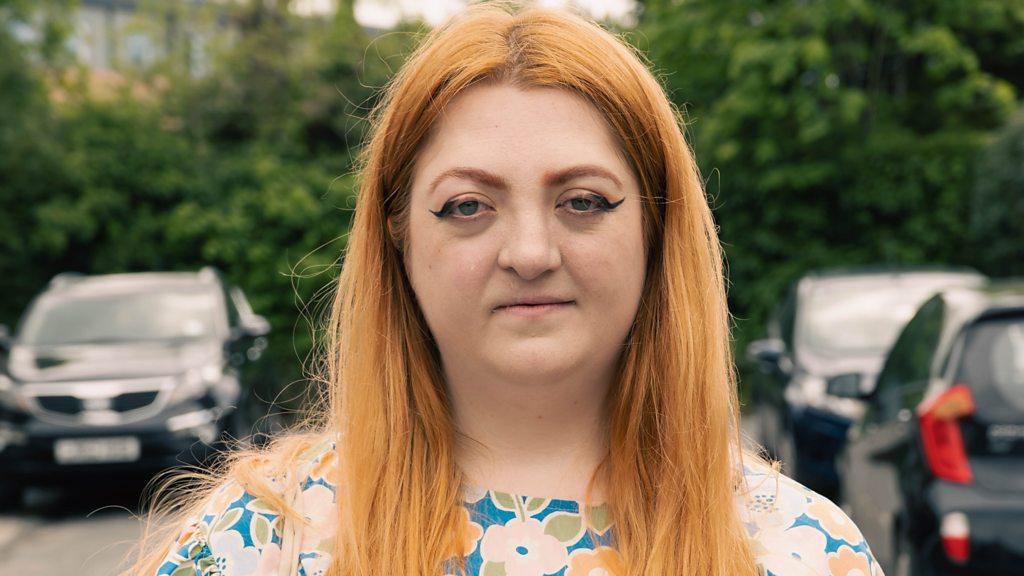Bristol family pays £30k to avoid pandemic surgery delays
- Published

Daniel's family feared he may have long-term problems if they did not pay for surgery
The family of a baby with a cleft lip paid almost £30,000 for surgery due to long treatment delays on the NHS.
Daniel's parents decided paying the money was better than risking him developing a long-term speech disorder.
A recent report found that more than 100 children with cleft lips or palates had suffered harm as a result of a long wait for surgery in Bristol.
University Hospitals Bristol & Weston NHS Trust said it had made a number of improvements to cut the waiting list.
The report found delays in cleft lip and palette surgery at Bristol Children's Hospital - the main provider for the treatment in the South West - had worsened during the pandemic, but there were already concerns before lockdown.
'Risk of harm'
These included limited operating theatre capacity, pressure on speech and language therapy teams, and long-term sickness of key clinical specialists.
An assessment of 268 patients waiting for treatment between 2020 and 2022 found 118 had experienced some degree of harm as a result of the wait.
Two had suffered severe harm, 91 experienced "moderate" harm and 25 experienced "minor harm", while a further 57 were at "greater risk of coming to harm" unless they were treated soon.
NHS guidelines advise that cleft lips should be treated by six months of age and cleft palates by 13 months.
If treatment is delayed, children are at greater risk of developing problems with speech, feeding, weaning and socialising.
Daniel's family decided the risk of waiting was too great.

Daniel's father Christopher said paying for the surgery had been difficult for the family
His father Christopher, a dentist in Taunton, told BBC West: "We knew if he was treated past a certain time frame there was an increased risk of speech impediments for this particular operation."
The family learned that delays could result in the need for further surgery, as well as long-term speech and language therapy.
They decided to pay almost £30,000 to have Daniel treated at Great Ormond Street Hospital in London.
Christopher said: "Having to pay privately for our son's operation was difficult.
"We were incredibly lucky to have the opportunity to do that, which other people may not have been able to do."
Claire Cunniffe, chief executive of the Cleft Lip and Palate Association, said the root cause of the problem in Bristol appeared to be access to theatre time.
She said her organisation had found teams within the hospital were having to compete for access to operating theatres.
"Our understanding is that this problem wasn't dealt with early on by the hospital trust (and) the pandemic has clearly exacerbated issues."
Ms Cunniffe said she feared that families in the South West were starting to accept long waits for surgery as "the norm," and might not realise the risks it posed to children.
Stuart Walker, chief medical officer for University Hospitals Bristol & Weston NHS Foundation Trust, said: "This is not the experience we wish for anyone in our care and we are committed to do all we can to support them as they continue their treatment.
"We have already made a number of service improvements, which includes increasing the theatre sessions, offering more speech and language therapy and psychological support, increasing the provision of speech investigation diagnostics and introducing nose-retained speech devices."

Follow BBC West on Facebook, external, Twitter, external and Instagram, external. Send your story ideas to: bristol@bbc.co.uk, external
- Published21 April 2023

- Published20 May 2022

- Published21 October 2021
